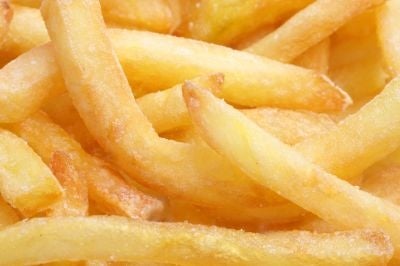Your support helps us to tell the story
From reproductive rights to climate change to Big Tech, The Independent is on the ground when the story is developing. Whether it's investigating the financials of Elon Musk's pro-Trump PAC or producing our latest documentary, 'The A Word', which shines a light on the American women fighting for reproductive rights, we know how important it is to parse out the facts from the messaging.
At such a critical moment in US history, we need reporters on the ground. Your donation allows us to keep sending journalists to speak to both sides of the story.
The Independent is trusted by Americans across the entire political spectrum. And unlike many other quality news outlets, we choose not to lock Americans out of our reporting and analysis with paywalls. We believe quality journalism should be available to everyone, paid for by those who can afford it.
Your support makes all the difference.A new study reveals that even slight drops in your blood sugar levels not only stir cravings for fatty, caloric treats but also leave you less resistant to their alluring powers.
Researchers from the University of South California in the US noted that this was especially true for obese people, who in the study were even less able to fight off temptation after a blood sugar, or glucose level, drop.
"Obese individuals may have a limited ability to inhibit the impulsive drive to eat, especially when glucose levels drop below normal," said study researcher Kathleen Page in a release.
The researchers scanned the brains of 14 people - five were obese and nine had a normal weight - as they looked at images of high-calorie foods (such as ice cream and hamburgers), low-calorie foods (salads), and other nonfood items such as a chair or lamp. Participants' blood sugar levels were manipulated by an IV.
Dips in blood sugar levels activated areas of the brain involved in motivating us to act, while areas associated with controlling impulses became less active.
Interestingly, for subjects with average weight, brain activity returned to normal as soon as blood sugar leveled out. For the obese subjects, this didn't happen - the activity in their prefrontal cortex, responsible for impulse control, remained reduced in both low and normal blood sugar states.
On September 19, the study was published online in The Journal of Clinical Investigation.
Prior research has revealed that junk food can affect your brain in ways similar to hard drugs, signaling dopamine receptors and changing behaviors so that eating junk food becomes a top priority.
One way to avoid the junk food temptation, experts say, is to avoid going long stretches of time without eating and watch portion sizes when you do indulge in a junk food treat.
For your meals and snacks, select high-protein, high-fiber foods lower on the glycemic index, which refers to how quickly foods affect blood sugar. Low-glycemic foods can stabilize energy levels to keep your blood sugar from dropping. Foods higher on the index (sweets, white rice, white flour breads) spike blood sugar but then subsequently lead to an energy crash.

Join our commenting forum
Join thought-provoking conversations, follow other Independent readers and see their replies
Comments